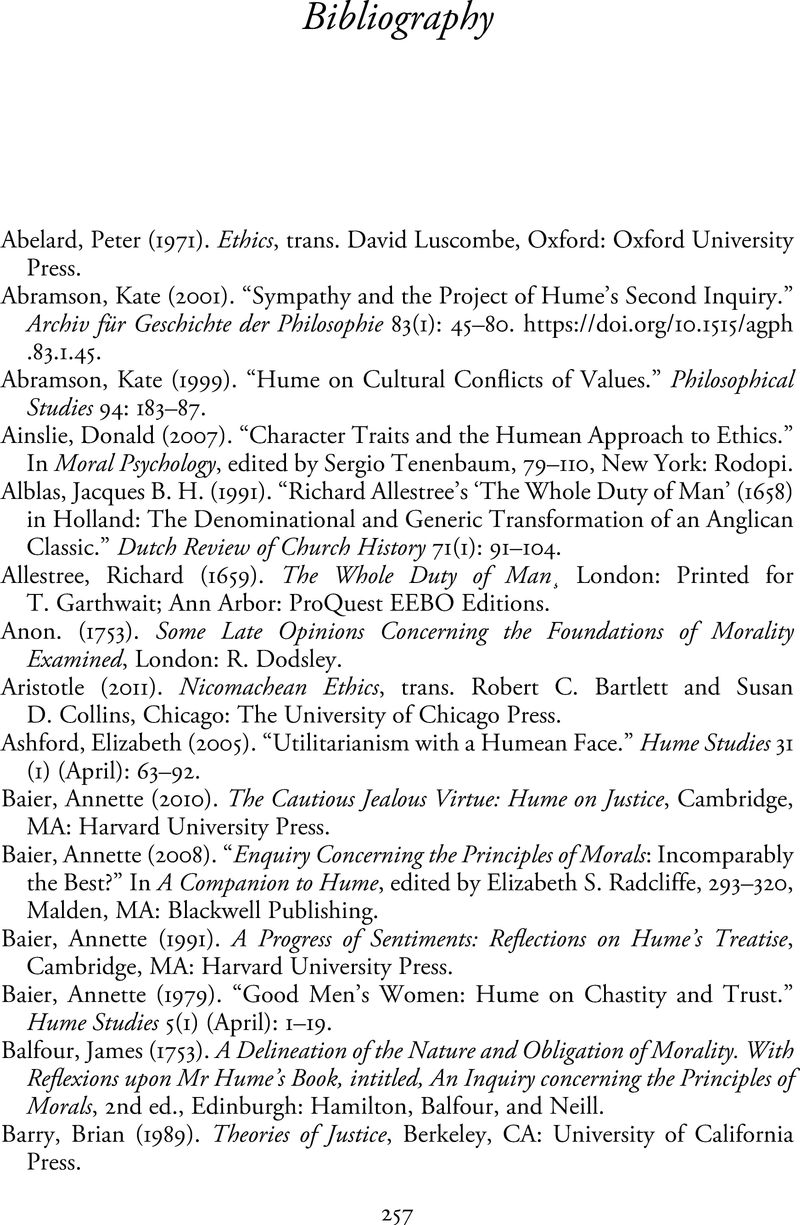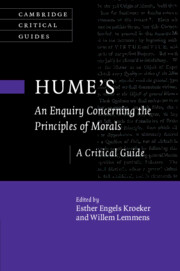Book contents
- Hume’s An Enquiry Concerning the Principles of Morals
- Cambridge Critical Guides
- Hume’s An Enquiry Concerning the Principles of Morals
- Copyright page
- Contents
- Contributors
- Acknowledgments
- Abbreviations
- Introduction
- Chapter 1 The Nature of Morals Founded on the Human Fabric
- Chapter 2 The Pride of Pericles
- Chapter 3 Justice and Politics in the Enquiry Concerning the Principles of Morals
- Chapter 4 History, Context, and the Conventions of Political Society
- Chapter 5 “Why Utility Pleases”
- Chapter 6 Hume on Talents and Moral Virtues
- Chapter 7 Virtues Suspect and Sublime
- Chapter 8 Sympathy and the Sources of Moral Sentiment
- Chapter 9 Virtue and Moral Psychology in the Enquiry Concerning the Principles of Morals
- Chapter 10 Hume, Cicero, and the Ancients
- Chapter 11 Hume on Religion in the Enquiry Concerning the Principles of Morals
- Chapter 12 Moral Disagreement
- Bibliography
- Index
- Cambridge Critical Guides
- References
Bibliography
Published online by Cambridge University Press: 08 January 2021
- Hume’s An Enquiry Concerning the Principles of Morals
- Cambridge Critical Guides
- Hume’s An Enquiry Concerning the Principles of Morals
- Copyright page
- Contents
- Contributors
- Acknowledgments
- Abbreviations
- Introduction
- Chapter 1 The Nature of Morals Founded on the Human Fabric
- Chapter 2 The Pride of Pericles
- Chapter 3 Justice and Politics in the Enquiry Concerning the Principles of Morals
- Chapter 4 History, Context, and the Conventions of Political Society
- Chapter 5 “Why Utility Pleases”
- Chapter 6 Hume on Talents and Moral Virtues
- Chapter 7 Virtues Suspect and Sublime
- Chapter 8 Sympathy and the Sources of Moral Sentiment
- Chapter 9 Virtue and Moral Psychology in the Enquiry Concerning the Principles of Morals
- Chapter 10 Hume, Cicero, and the Ancients
- Chapter 11 Hume on Religion in the Enquiry Concerning the Principles of Morals
- Chapter 12 Moral Disagreement
- Bibliography
- Index
- Cambridge Critical Guides
- References
Summary

- Type
- Chapter
- Information
- Hume's An Enquiry Concerning the Principles of MoralsA Critical Guide, pp. 257 - 268Publisher: Cambridge University PressPrint publication year: 2021

